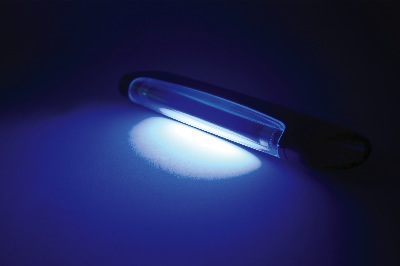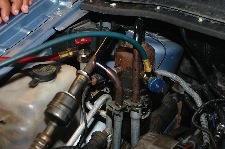In the automotive industry, like many places, it seems the only thing that remains constant is change. While that seems contradictory and possibly negative, in fact it’s one of the great things about our industry. Constant change is the engine that drives opportunity. (Pun intended!)
But seriously, it is this constant innovation, invention, redesign and remodeling that brings new business to our companies. This can be seen with new model vehicles every year, innovations in technology, new product introductions and a host of other ways.
In the following article, I will share with you some information and suggestions for making product-buying decisions regarding mobile air conditioning tools and equipment. This group of products is experiencing a significant amount of change right now that is causing manufacturers to scramble to meet new requirements.
While certainly not new “news,” there is a new refrigerant gas mandate that will directly affect many of us in one way or another in the automotive aftermarket. R-1234yf is the new refrigerant that has already entered the marketplace in some vehicles and will be introduced in more vehicles in the next 12-24 months.
This article is not intended to explain or describe the new gas — that has been done in many other magazines and articles by far more accomplished writers than this author. The main thing to know about the gas is it requires different techniques to handle, diagnose, evacuate and recharge. It also requires tools and equipment that have received a specific certification to be compatible with R-1234yf.
So let’s talk about the tools and equipment that you need to consider as a technician and/or shop owner. To effectively and legally service today’s automotive air conditioning systems, you need some specific tools and equipment. The tools allow you to diagnose, detect, recover, recharge, recycle and repair vehicles with R-1234-yf.
Because the new gas is rated as mildly flammable, new certifications will be required for equipment. This will be especially important for electronic leak detection tools as well as R/R/R (Recovery, Recycle and Recharge) machines.

Electronic Leak Detection
The changes for “sniffers” are one of the more interesting changes that are happening. While most, if not all, leak detectors with SAE J-2791 compliance are probably capable of detecting R-1234yf presence, these detectors will still be undergoing changes and/or re-works relative to the new gas. A critical factor surrounding the new gas is percentage of purity. Percentage of purity is a critical value that is best addressed by using a compliant refrigerant identifier. The company that manufactures and distributes this equipment to almost all of the marketers, has developed new models for this very need. When you go to make a purchase, you will need to ask your dealer about the tool’s ability to detect and display information relative to R-1234yf. While the new tools are starting to be available, don’t be surprised if your tool distributor doesn’t have much information on this yet.
As others and I have said for years, electronic leak detection should be considered half of your “one-two punch” for finding leaks. Due to restricted spaces, limited sight lines and other reasons, you need to also have a UV or ultraviolet solution for leak detection in your arsenal of tools.
Ultraviolet Leak Detection
This method of leak detection will be affected on two different fronts. As you can expect with any new gas, comes the requirement for dedicated and specific connection systems. R-1234yf is no exception. This common sense approach, assures that technicians don’t inadvertently cross-contaminate refrigerants.
So the first change that will have to occur with UV leak detection is to obtain adapters that allow you to connect to the new fittings. All the major suppliers of UV products have already started this process and this should not be a difficult change. Many of the existing systems and dyes may be compatible.
There is another significant change that will also affect UV dye tools. There are some different lubricant formulations required to be used with the new refrigerant. This will require you to stock these different oils for servicing R-1234yf.

Recovery and Recycling Machines
This is likely the most expensive piece of A/C service equipment you will purchase or use as an automotive shop owner/technician. As you might imagine, it is also one of the items that will be most affected by the introduction of the new gas. The actual functions and components needed to work with the new refrigerant are not necessarily what is the most affected. All the primary components, processes and steps will be similar to what you are used to today. There are, however, some important changes for you to consider.
First, and possibly most important, is the control and elimination of cross-contamination. This is accomplished in a couple of different manners. The first, and most obvious, will be the implementation of new dedicated couplers/connectors to the hose ends. This will assure that the machine cannot be accidentally “hooked up” to cars with different gases on board. In addition to that change, there will be some internal changes to construction and design to accommodate the slight risk of flame or explosion.
Process will change somewhat to allow for elimination of air introduction to vehicle systems. This will require a “purge” cycle to clear hoses prior to connection. While this is a good process anyway, the new machines will mandate this as part of the service cycle.
Now for some good news. While recovery machines are never inexpensive, there does not seem to be any indication that the new equipment will be significantly more expensive than current models.
It is probably good to mention that while this new refrigerant gas has been approved and is in the implementation phase, you as a shop owner or technician may not begin to see vehicles coming into your shop for some time yet. This will be different depending on what kind of technician you are, as well as where you are in the country. Some of the first garages and technicians to see this may be collision technicians and body shops.
